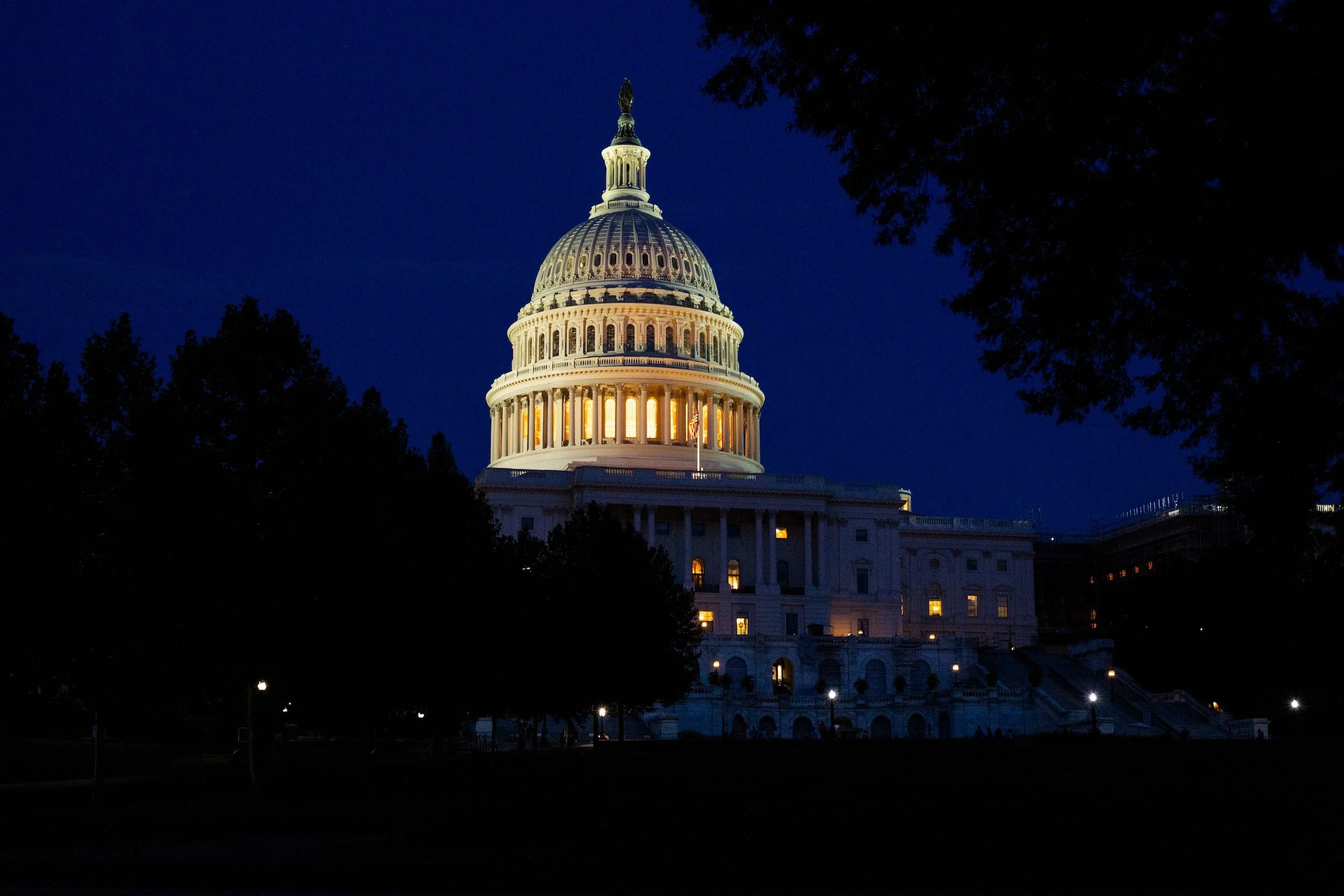HOT TAKES. ONE PLACE.
There's a LOT to know about insurance. So, whether you've got a specific question or just want the 411 on what we do, click around on the articles below.
Senate Votes to End COVID-19 National Emergency Declaration Early
On March 29, 2023, the U.S. Senate passed a resolution that would end the COVID-19 national emergency declaration that has been in place since 2020. The U.S. House of Representatives voted in February to terminate the order, and President Joe Biden has indicated that he will sign the bill despite strongly opposing it.
HHS Secretary Responds to the President’s Executive Order on Drug Prices
In response to President Joe Biden’s executive order on lowering prescription drug costs for Americans, the U.S. Department of Health and Human Services (HHS) secretary chose three new models for testing to further build on the new prescription drug law.
OSHA Authorized to Certify Special Visa Applications During Inspections
On Feb. 13, 2023, the OSHA received the authority by memorandum to issue certification in support of applications for U nonimmigrant status and T nonimmigrant status visas. OSHA’s new authority becomes effective March 30, 2023.
President Biden Discusses Employee Benefits and the Workplace in State of the Union Address
On Tuesday, Feb. 7, President Joe Biden delivered the 2023 State of the Union (SOTU) address. The SOTU address is an annual speech the president delivers near the beginning of each year, outlining how the country is doing and identifying future initiatives the current administration wants to pursue.
Biden Administration Announces Proposed Rule to Expand Access to Birth Control Coverage Under the ACA
On Jan. 30, 2023, the U.S. Departments of Health and Human Services (HHS), Labor and Treasury announced a proposed rule expanding access to birth control coverage under the Affordable Care Act (ACA). The proposed rule would eliminate the moral exemption, which was put in place in 2018, that permits employers to opt out of providing contraceptive services due to their moral convictions.
How the End of the COVID-19 Emergency Periods Will Impact Health Plans
The Biden Administration has announced its plan to end the COVID-19 national emergency and public health emergency (PHE) on May 11, 2023. Employer-sponsored health plans have been required to comply with certain coverage requirements during the COVID-19 emergency periods.
New Laws Expand Pregnancy and Nursing Accommodations
Two new laws that were included in the federal omnibus spending bill, enacted on Dec. 29, 2022, will expand workplace rights for employees affected by pregnancy, childbirth or related conditions starting in 2023.
FMCSA Medical Examiners Must Now Recertify Every 10 Years
On Jan. 11, 2023, the Federal Motor Carrier Safety Administration (FMCSA) published a notice of implementation of medical examiner refresher training and recertification every 10 years. The regulation is required for all eligible medical examiners certified and listed on the FMCSA’s National Registry of Certified Medical Examiners (National Registry).
Tips for Training Managers on FMLA Compliance
The Family and Medical Leave Act (FMLA) is a federal law providing eligible employees of covered employers with unpaid, job-protected leave for specified family and medical reasons. In general, eligible employees may take up to 12 weeks of leave each year for FMLA-qualifying reasons, including for treatment of a serious health condition.
FTC Proposes Rule to Ban Noncompete Agreements
On Jan. 5, 2023, the Federal Trade Commission (FTC) announced a proposed rule that would ban noncompete clauses in employment agreements. In making its historic announcement, the agency stated that noncompete agreements harm competition; suppress wages for workers, including those not subjected to noncompete clauses; reduce labor mobility; and hamper innovation.
Congress Extends Pre-Deductible Telehealth Coverage for HDHPs
The Consolidated Appropriations Act, 2023 (CAA), which was signed into law on Dec. 29, 2022, extends the ability of high deductible health plans (HDHPs) to provide benefits for telehealth or other remote care services before plan deductibles have been met without jeopardizing health savings account (HSA) eligibility.
Submission Grace Period Issued for Prescription Drug Reporting
The transparency provisions of the No Surprises Act require group health plans and health insurance issuers to report information on prescription drugs and health care spending to the Departments of Labor, Health and Human Services and the Treasury (Departments).
Speak Out Act Signed Into Law
Aiming to improve transparency around illegal conduct in the workplace, the U.S. Congress has enacted a new law, the Speak Out Act, that renders certain nondisclosure and nondisparagement agreements unenforceable. President Joe Biden signed the Speak Out Act into law on Dec. 7, 2022.
What Employers Should Know About the WARN Act
The Worker Adjustment and Retraining Notification Act (WARN) took effect in 1989 to protect workers, their families and communities by ensuring workers receive advance notice about qualified plant closings and mass layoffs. With sufficient notice, workers can better plan for and adjust to a loss of employment, and communities are better able to cope with large-scale job loss.
New Login Procedures for OSHA’s Injury Tracking Application
OSHA recently announced new login procedures for its injury tracking application (ITA). The OSHA ITA has transitioned its login procedure to the public’s one account access to government applications, Login.gov. The new login procedures are already in effect.
FMCSA Ends All Active Coronavirus Trucking Exemptions
The Federal Motor Carrier Safety Administration (FMCSA) has allowed all COVID- 19 commercial motor vehicle (CMV) emergency declarations to expire on Oct. 15, 2022. These exemptions provided CMV drivers compliance flexibility for certain sections of Part 395 of the Federal Motor Carrier Safety Regulations (FMCSRs), including hours of service requirements, vehicle inspection obligations and driver qualification rules.
What Employers Should Know About E-Verify
Federal law requires employers to only hire individuals who may legally work in the United States—either U.S. citizens or authorized foreign nationals. To comply with the law, employers must verify the identity and employment authorization of each individual they hire by completing and retaining the Employment Eligibility Verification document (Form I-9). Despite employers’ best efforts, compliance with federal law can be difficult.
ACA Pay or Play Penalties Will Increase for 2023
On Aug. 16, 2022, the IRS updated its frequently asked questions (FAQs) on the employer shared responsibility (pay or play) rules under the Affordable Care Act (ACA) to include updated penalty amounts for 2023. For calendar year 2023, the adjusted $2,000 penalty amount is $2,880 and the adjusted $3,000 penalty amount is $4,320.
DHS Proposes Permanent Rule Allowing Remote Verification of Form I-9 Documents
The Department of Homeland Security (DHS) and the U.S. Immigration and Customs Enforcement have recently proposed a permanent rule to allow employers to remotely review the Employment Eligibility Verification form (Form I-9) identity and employment authorization documents when hiring, reverifying or rehiring employees.
Court Blocks Change to Preventive Care Contraceptive Guidelines
On Aug. 12, 2022, a federal district court blocked the Department of Health and Human Services’ (HHS) Health Resources and Services Administration (HRSA) from removing “instruction in fertility awareness-based methods, including the lactation amenorrhea method” from its list of recommended preventive health services.





















